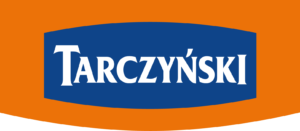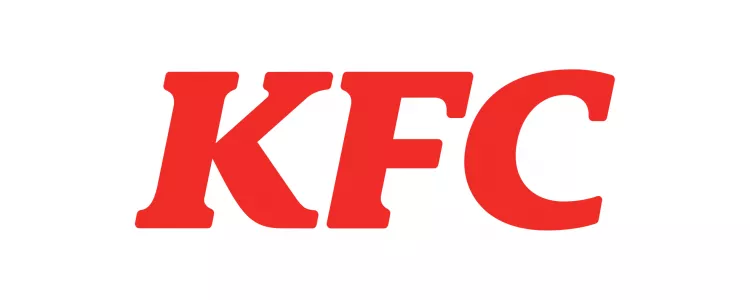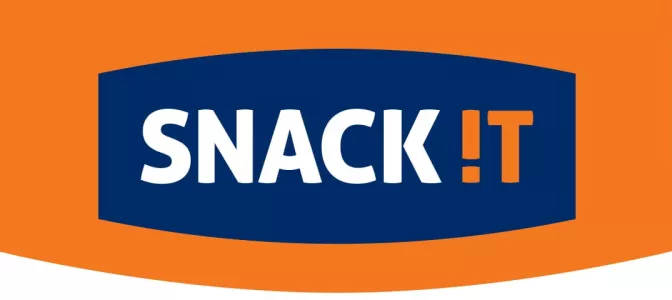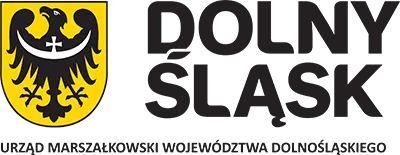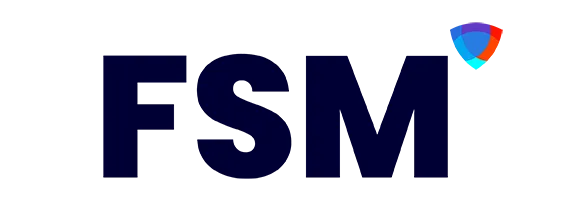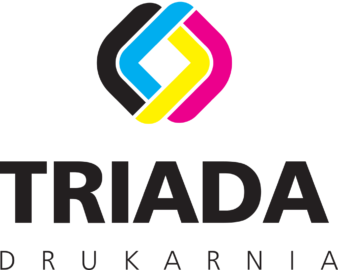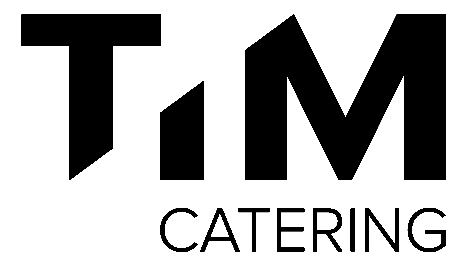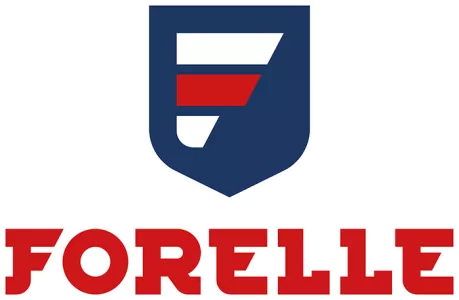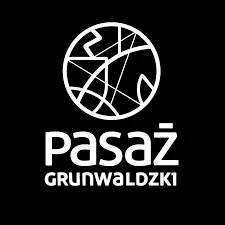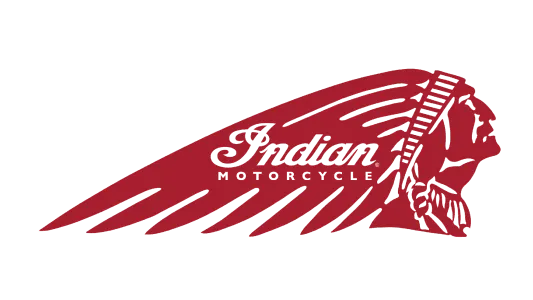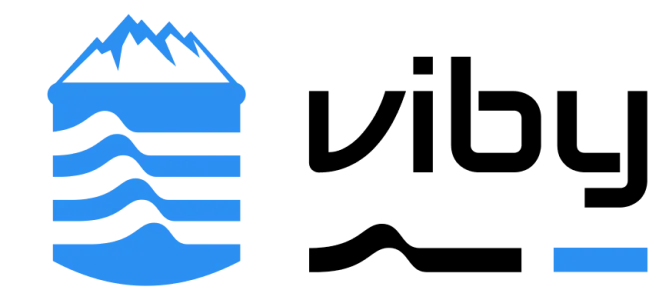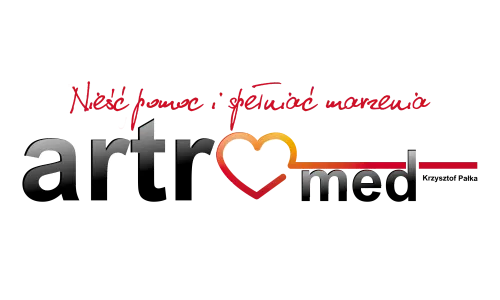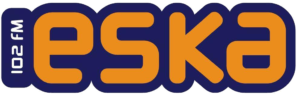
Karolina Janas: We pay attention to details [INTERVIEW]
1 year ago | 05.04.2024, 10:00![Karolina Janas: We pay attention to details [INTERVIEW]](https://dfdu1vke3eg77.cloudfront.net/spaces/181/img/news/a719895142eb58823ed952e3c0e5f7e7.webp)
Panthers Wrocław are recognized as one of the most efficiently operating organizations in the European League of Football. A significant part of its functioning is attributed to Karolina Janas – the club's operational director, also responsible for all player-related matters. What are the daily challenges associated with running such a large organization? How should we take care of players from abroad? And what is most important in the context of developing junior programs?
Filip Skalski: What do you do outside of the season?
Karolina Janas: Generally, my duties can be divided into three areas: finances and formalities, planning and logistics, and coordinating the daily office work. To paraphrase our president Michał Latos: on the first day after the end of the season, we start the next one. And speaking broadly, we dedicate all this time to preparing our organization as best as possible for the next year. This includes a range of issues to address – such as evaluating the activities of individual sections and the entire club, planning and implementing changes and improvements, and budgeting. In terms of football-related matters, it mainly involves all logistics related to the arrival and presence of foreign coaches, both during camps and during their arrivals for the season, as well as preparing everything from a formal perspective – signing contracts or preparing players for their arrival, starting with signing or extending contracts. I am also actively involved in negotiations.
At first glance, this may seem fairly straightforward, but what is it like in reality?
There are a lot of nuances. After signing a contract with a particular person, we start planning all the logistics. In the case of coaches, this concerns their arrivals for pre-season camps – we have to organize things like flights, accommodation, or meals for them. From April onwards, it starts all over again but on a four times larger scale, as players come to us, often with their families. There are plenty of details to coordinate – we have to plan everything so that it is not too burdensome for us and the club can function normally. It's easy to schedule everyone's arrivals in one week, but it's much harder to implement such a plan. To maintain the fluidity of our work, I try to do this in an optimal way – so that the whole process doesn't disrupt our daily duties. And all of this involves picking up a particular person from the airport, taking them to their accommodation, integrating them into the organization, and explaining how everything works on-site. I must mention that our front office is a team of great people who give their 100%, and every year we raise the bar in terms of organization thanks to them, as well as Michał Latos, Kuba Głogowski, and Dawid Tarczyński, we become more professional year by year.
What are the first contacts with players and coaches from abroad like?
After signing the contract, we need to establish all the details. This usually involves a series of messages that we need to exchange – everyone has questions or individual preferences, such as regarding accommodation or travel. For example, someone may not want to fly through Chicago because flights there are often canceled due to weather conditions. This can be understood because it's a major airport where transfers are not the easiest. So, there are many details to consider.
I always try to show our guests the places where they will live and work when they come to Poland. When you move to the other side of the ocean, you want to know what you'll find on the spot. So, we are in constant contact – I tell them how their life will look like in our country. We pay attention to details.
Whenever a player or coach lands in Wrocław, we always pick them up from the airport, which is done with the help and support of the entire office.
What is the process of acclimatization like for players or coaches from abroad?
If time allows, after picking them up from the airport, we bring our guest to the club's headquarters so they can meet our employees and coaches. In the case of players, their positional coach always accompanies them to the airport because they will have the most contact with them – this improves their comfort in adapting to the new reality.
Then we go for a meal together, show them around the stadium, and "install" them in their apartment. Here it's important that we explain to them how everything works on-site – where they can find fuses or even how to use a gas stove, because for Americans, who commonly use electric stoves, it may not be so obvious.
We also remind them to contact us in case of any problems. We also show them all the facilities that will help them navigate the place, such as the JakDojade app, which greatly facilitates traveling by public transport.
Each of the coaches or players also wants to have contact with their family, so we provide them with SIM cards so they can use the internet as soon as possible. We also give them PESEL numbers and set up Polish bank accounts, explaining how to use them, or how to use Blik, for example, or how to add a card to Apple Wallet. We also take care of all the formalities related to their employment, and there are quite a few, as everyone can imagine.
Another important element is simply showing and introducing them to our everyday life – where the locker room is, the field, where they will find the physiotherapy room, or how they can get club merchandise.
What surprises Americans upon arrival in Poland?
Certainly, the prices, especially when it comes to food and transportation. Americans are surprised by how affordable it is to order an Uber or go to a restaurant compared to the USA. Another difference may also be the issue of laundry. Living in an apartment in the States, you usually have access to a communal laundry room. It doesn't work like that here because everyone has a washing machine at home, and it's considered natural. Americans are also surprised that we don't use electric clothes dryers as widely. For us, it's still exotic, while in the States, almost everyone has one. Another significant difference is the voltage in electrical networks. In short: trying to use an American dryer usually ends up tripping the fuses. Besides, in the USA, unless you live in a city like New York, using buses or trams is also a novelty. So, our guests have to be convinced that public transportation in Poland is punctual, safe, and you can get anywhere thanks to it. There are many cultural differences, but they come down to very simple things.
What about Polish players?
Last year, our Head Coach, Dave Christensen, assigned me an additional role – now, as Player Personnel Director, I am responsible for contacting all the players – this is a change from what I have been doing so far, as I am now also responsible for Polish players. Here – with the support of the entire team – I plan the logistics in a similar way, prepare contracts, conduct evaluations, and explain the decisions and assessments of the coaches. I try to be the first point of contact for players in solving their individual problems and also address their collective needs and observations regarding the section's functioning. What does this involve? For example, arranging leave from the university for a player who has classes on the day of the match or changing the flavor of isotonic drinks served at training. Small and big issues that I solve together with our office team.
What does it look like during the season?
In addition to matters related to supporting players and coaches, I deal with the day-to-day functioning of the club. I ensure that employees are paid on time and all obligations are settled. I monitor the budget and ensure that expenses are balanced – which often means making difficult decisions about what we can afford or not. I also handle all personnel and accounting documents. All of this takes up a lion's share of my time. Regarding the season itself, I also oversee to some extent the organization of home and away matches, where I am also responsible for logistics, organization, and formalities such as cooperation with a company securing a mass event or insurance policies. As for away trips, it is my responsibility to organize them from A to Z. I cooperate with the company FanLogic, which is responsible for transportation, book hotels according to the coaches' requirements, set menus for meals, ensure appropriate facilities on-site, such as conference rooms and physiotherapy rooms. Each time, I also prepare the schedule for the entire trip.
What about emergencies, such as injuries during the season and quickly bringing in a new player?
Here, we replicate the off-season scheme, but at a much faster pace. So far, we had until Wednesday of the current week to change a player, so if we found out on Sunday or Monday that a player would be out of the game, the coaches immediately contacted someone to replace him. Then we finalize the details of the contract, and I simultaneously look for a connection to transport such a person to Wrocław. If a player agrees to our terms – we bring them in as soon as possible. It's worth mentioning here that our coaching staff is well-informed about the player market, their excellent scouting makes it easier to quickly find a replacement in case of injury to a key player.
How do players coming to Panthers from other teams react to the organization on-site? How does it compare to other clubs?
I'll admit immodestly that they are often surprised and claim that they have never encountered such a high-quality organization and sports base before. Contrary to what might be thought, not all ELF clubs have their own office. At this point, it is worth thanking our sponsor, Tarczyński S.A., without which building such a center would not be possible. We have artificial turf pitches, grass pitches, gyms, locker rooms, physiotherapy rooms, conference rooms, and an office with all the technical facilities within a few steps. This is a very strong argument in negotiations. We even had players who came to see everything up close before deciding to sign a contract with us. We realize how important this is for players who look prospectively and think not only about financial but also training and life conditions. This is a very important element that brings results. And yet, the fact that we signed such impressive foreign players this year is impressive to everyone, I think.
In what direction is the development of Panthers Juniors heading?
I have been involved with the Panthers Wrocław junior section from the very beginning, and I always say that when it comes to youth development, regularity and consistency are the most important. Children and young people need to know on what principles their functioning in the club is based, and above all, it is very important that they have someone to look up to. I always say that leading and building a junior section is not a complicated matter. The most difficult part of all this is that American football is still not a common sport, and convincing young people to try something new is a problem. However, there are young players who have already encountered football somewhere – whether on TV, on the internet, or through friends. These children need stability, and we must consistently do our job every day.
I also repeat this to other Polish clubs – in fact, that's all that's needed. Juniors don't have to have the best foreign coaches, but responsible people who know how to train them. These should be individuals who know how to play football and can pass on their knowledge. And that's how we actually develop this section step by step. Regular recruitments are important because today young people are exposed to a lot of stimuli from all sides, and it's easy for them to forget about football and other passions. However, such regularity and the fact that juniors meet and train on the field or in the gym systematically allow sports to be integrated into a young person's life as something inseparable. This can be described as shaping the character of an athlete. I must add that youth training has always been very important to us, and it holds a special place in the heart of Mr. Jacek Tarczyński – our owner, whose support allows us to expand youth sections year after year, for which I am extremely grateful personally.
How should the U16 section function? What is its goal?
We would like to provide the U16 team with the opportunity to compete with peers, i.e., other teams in this age category. At the moment, we can find such clubs only in Germany, so we will probably have to look for rivals there who would like to test themselves against us. Nevertheless, I hope that someday in Poland, we will have U16 competitions. In addition to this, we have separate training sessions specifically tailored for this section. However, it must be emphasized that in junior football, results are not important. We at Panthers Wrocław love to win very much, maybe even more than others, but the most important thing for young people is to gain experience. Even if this experience is based on dealing with defeats, it is always an important lesson. Later, thanks to this, as adults, such players will be able to cope with situations when a match or a season doesn't go as planned. It won't end with giving up sports altogether but rather with an understanding that it's part of the whole process. To achieve goals, sometimes you have to swallow the bitterness of defeat and draw conclusions to become better.
What do you wish for yourself and the team in the upcoming season?
I won't surprise you – I wish us to achieve our main goal, which is winning the European League of Football championship, and also the best results for all our sections - juniors, lacrosse, box lacrosse, softball, and ultimate frisbee!
Filip Skalski: What do you do outside of the season?
Karolina Janas: Generally, my duties can be divided into three areas: finances and formalities, planning and logistics, and coordinating the daily office work. To paraphrase our president Michał Latos: on the first day after the end of the season, we start the next one. And speaking broadly, we dedicate all this time to preparing our organization as best as possible for the next year. This includes a range of issues to address – such as evaluating the activities of individual sections and the entire club, planning and implementing changes and improvements, and budgeting. In terms of football-related matters, it mainly involves all logistics related to the arrival and presence of foreign coaches, both during camps and during their arrivals for the season, as well as preparing everything from a formal perspective – signing contracts or preparing players for their arrival, starting with signing or extending contracts. I am also actively involved in negotiations.
At first glance, this may seem fairly straightforward, but what is it like in reality?
There are a lot of nuances. After signing a contract with a particular person, we start planning all the logistics. In the case of coaches, this concerns their arrivals for pre-season camps – we have to organize things like flights, accommodation, or meals for them. From April onwards, it starts all over again but on a four times larger scale, as players come to us, often with their families. There are plenty of details to coordinate – we have to plan everything so that it is not too burdensome for us and the club can function normally. It's easy to schedule everyone's arrivals in one week, but it's much harder to implement such a plan. To maintain the fluidity of our work, I try to do this in an optimal way – so that the whole process doesn't disrupt our daily duties. And all of this involves picking up a particular person from the airport, taking them to their accommodation, integrating them into the organization, and explaining how everything works on-site. I must mention that our front office is a team of great people who give their 100%, and every year we raise the bar in terms of organization thanks to them, as well as Michał Latos, Kuba Głogowski, and Dawid Tarczyński, we become more professional year by year.
What are the first contacts with players and coaches from abroad like?
After signing the contract, we need to establish all the details. This usually involves a series of messages that we need to exchange – everyone has questions or individual preferences, such as regarding accommodation or travel. For example, someone may not want to fly through Chicago because flights there are often canceled due to weather conditions. This can be understood because it's a major airport where transfers are not the easiest. So, there are many details to consider.
I always try to show our guests the places where they will live and work when they come to Poland. When you move to the other side of the ocean, you want to know what you'll find on the spot. So, we are in constant contact – I tell them how their life will look like in our country. We pay attention to details.
Whenever a player or coach lands in Wrocław, we always pick them up from the airport, which is done with the help and support of the entire office.
What is the process of acclimatization like for players or coaches from abroad?
If time allows, after picking them up from the airport, we bring our guest to the club's headquarters so they can meet our employees and coaches. In the case of players, their positional coach always accompanies them to the airport because they will have the most contact with them – this improves their comfort in adapting to the new reality.
Then we go for a meal together, show them around the stadium, and "install" them in their apartment. Here it's important that we explain to them how everything works on-site – where they can find fuses or even how to use a gas stove, because for Americans, who commonly use electric stoves, it may not be so obvious.
We also remind them to contact us in case of any problems. We also show them all the facilities that will help them navigate the place, such as the JakDojade app, which greatly facilitates traveling by public transport.
Each of the coaches or players also wants to have contact with their family, so we provide them with SIM cards so they can use the internet as soon as possible. We also give them PESEL numbers and set up Polish bank accounts, explaining how to use them, or how to use Blik, for example, or how to add a card to Apple Wallet. We also take care of all the formalities related to their employment, and there are quite a few, as everyone can imagine.
Another important element is simply showing and introducing them to our everyday life – where the locker room is, the field, where they will find the physiotherapy room, or how they can get club merchandise.
What surprises Americans upon arrival in Poland?
Certainly, the prices, especially when it comes to food and transportation. Americans are surprised by how affordable it is to order an Uber or go to a restaurant compared to the USA. Another difference may also be the issue of laundry. Living in an apartment in the States, you usually have access to a communal laundry room. It doesn't work like that here because everyone has a washing machine at home, and it's considered natural. Americans are also surprised that we don't use electric clothes dryers as widely. For us, it's still exotic, while in the States, almost everyone has one. Another significant difference is the voltage in electrical networks. In short: trying to use an American dryer usually ends up tripping the fuses. Besides, in the USA, unless you live in a city like New York, using buses or trams is also a novelty. So, our guests have to be convinced that public transportation in Poland is punctual, safe, and you can get anywhere thanks to it. There are many cultural differences, but they come down to very simple things.
What about Polish players?
Last year, our Head Coach, Dave Christensen, assigned me an additional role – now, as Player Personnel Director, I am responsible for contacting all the players – this is a change from what I have been doing so far, as I am now also responsible for Polish players. Here – with the support of the entire team – I plan the logistics in a similar way, prepare contracts, conduct evaluations, and explain the decisions and assessments of the coaches. I try to be the first point of contact for players in solving their individual problems and also address their collective needs and observations regarding the section's functioning. What does this involve? For example, arranging leave from the university for a player who has classes on the day of the match or changing the flavor of isotonic drinks served at training. Small and big issues that I solve together with our office team.
What does it look like during the season?
In addition to matters related to supporting players and coaches, I deal with the day-to-day functioning of the club. I ensure that employees are paid on time and all obligations are settled. I monitor the budget and ensure that expenses are balanced – which often means making difficult decisions about what we can afford or not. I also handle all personnel and accounting documents. All of this takes up a lion's share of my time. Regarding the season itself, I also oversee to some extent the organization of home and away matches, where I am also responsible for logistics, organization, and formalities such as cooperation with a company securing a mass event or insurance policies. As for away trips, it is my responsibility to organize them from A to Z. I cooperate with the company FanLogic, which is responsible for transportation, book hotels according to the coaches' requirements, set menus for meals, ensure appropriate facilities on-site, such as conference rooms and physiotherapy rooms. Each time, I also prepare the schedule for the entire trip.
What about emergencies, such as injuries during the season and quickly bringing in a new player?
Here, we replicate the off-season scheme, but at a much faster pace. So far, we had until Wednesday of the current week to change a player, so if we found out on Sunday or Monday that a player would be out of the game, the coaches immediately contacted someone to replace him. Then we finalize the details of the contract, and I simultaneously look for a connection to transport such a person to Wrocław. If a player agrees to our terms – we bring them in as soon as possible. It's worth mentioning here that our coaching staff is well-informed about the player market, their excellent scouting makes it easier to quickly find a replacement in case of injury to a key player.
How do players coming to Panthers from other teams react to the organization on-site? How does it compare to other clubs?
I'll admit immodestly that they are often surprised and claim that they have never encountered such a high-quality organization and sports base before. Contrary to what might be thought, not all ELF clubs have their own office. At this point, it is worth thanking our sponsor, Tarczyński S.A., without which building such a center would not be possible. We have artificial turf pitches, grass pitches, gyms, locker rooms, physiotherapy rooms, conference rooms, and an office with all the technical facilities within a few steps. This is a very strong argument in negotiations. We even had players who came to see everything up close before deciding to sign a contract with us. We realize how important this is for players who look prospectively and think not only about financial but also training and life conditions. This is a very important element that brings results. And yet, the fact that we signed such impressive foreign players this year is impressive to everyone, I think.
In what direction is the development of Panthers Juniors heading?
I have been involved with the Panthers Wrocław junior section from the very beginning, and I always say that when it comes to youth development, regularity and consistency are the most important. Children and young people need to know on what principles their functioning in the club is based, and above all, it is very important that they have someone to look up to. I always say that leading and building a junior section is not a complicated matter. The most difficult part of all this is that American football is still not a common sport, and convincing young people to try something new is a problem. However, there are young players who have already encountered football somewhere – whether on TV, on the internet, or through friends. These children need stability, and we must consistently do our job every day.
I also repeat this to other Polish clubs – in fact, that's all that's needed. Juniors don't have to have the best foreign coaches, but responsible people who know how to train them. These should be individuals who know how to play football and can pass on their knowledge. And that's how we actually develop this section step by step. Regular recruitments are important because today young people are exposed to a lot of stimuli from all sides, and it's easy for them to forget about football and other passions. However, such regularity and the fact that juniors meet and train on the field or in the gym systematically allow sports to be integrated into a young person's life as something inseparable. This can be described as shaping the character of an athlete. I must add that youth training has always been very important to us, and it holds a special place in the heart of Mr. Jacek Tarczyński – our owner, whose support allows us to expand youth sections year after year, for which I am extremely grateful personally.
How should the U16 section function? What is its goal?
We would like to provide the U16 team with the opportunity to compete with peers, i.e., other teams in this age category. At the moment, we can find such clubs only in Germany, so we will probably have to look for rivals there who would like to test themselves against us. Nevertheless, I hope that someday in Poland, we will have U16 competitions. In addition to this, we have separate training sessions specifically tailored for this section. However, it must be emphasized that in junior football, results are not important. We at Panthers Wrocław love to win very much, maybe even more than others, but the most important thing for young people is to gain experience. Even if this experience is based on dealing with defeats, it is always an important lesson. Later, thanks to this, as adults, such players will be able to cope with situations when a match or a season doesn't go as planned. It won't end with giving up sports altogether but rather with an understanding that it's part of the whole process. To achieve goals, sometimes you have to swallow the bitterness of defeat and draw conclusions to become better.
What do you wish for yourself and the team in the upcoming season?
I won't surprise you – I wish us to achieve our main goal, which is winning the European League of Football championship, and also the best results for all our sections - juniors, lacrosse, box lacrosse, softball, and ultimate frisbee!
